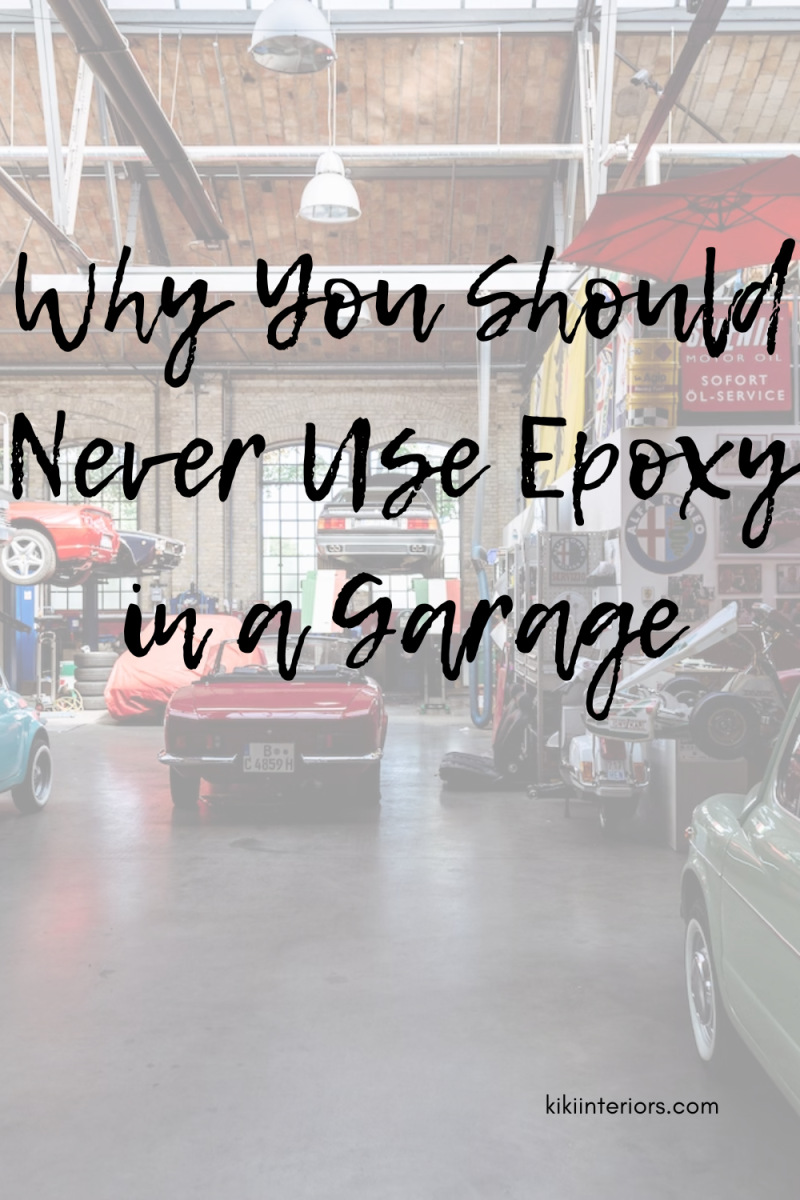
Did you know that there are 82 million garages in the U.S.?
This just goes to show that everyone needs a garage for a great feature and functionality to add to a house. It can provide room for extra cars or storage space to create extra space. However, you want it to be well-equipped and able to support vehicles or tools.
You may wonder how to protect the surfaces in a garage to keep them looking their best. While you may think epoxy floor coating may be the best solution, you would be wrong.
Here’s why you shouldn’t use epoxy in garage.
Dangerous Gas Leaks Of Epoxy
Of all the adhesives available, epoxy is one of the most vital substances. It is also one of the most dangerous. Epoxy could cause serious health hazards when used in a garage. If epoxy is used to seal a leak in a vehicle’s gas tank, it can lead to dangerous gas leaks.
It also has a potential for explosions. Further, epoxy can permanently stain the garage floor and other objects. Overall, the risks of using epoxy in the garage far outweigh any potential uses, and it should be avoided when possible.
Negative Health Consequences Of Epoxy
The epoxy contains several toxic chemicals, including volatile organic compounds (VOCs). This can be released into the air once it has been applied. These VOCs can irritate the eyes, nose, and throat and cause headaches, dizziness, and nausea.
Long-term exposure may even lead to more severe respiratory illnesses. Additionally, epoxy can cause severe skin burns and can harm the eyes. This makes it a dangerous product to use epoxy in a garage or any space where people live.
In addition to these negative health consequences, epoxy fumes can cause asthma. To keep your family safe, avoid using epoxy in a garage or other locations in your home. Be sure to contact Garage Force, who may be able to help you with safe and quality products for your garage.
Impact Your Garage Air Quality
Epoxy floor coating is not ideal for a garage. Epoxy is a non-breathable garage floor coating, trapping airborne particles in the floor and increasing air pollution within the garage. This, in turn, leads to an uncomfortable atmosphere for anyone working or spending time in the area.
Suppose garage owner wants to protect their air quality and health. In that case, epoxy should be avoided in favor of materials that won’t introduce VOCs to the environment, such as concrete or sealed wood. Garage coats that contain low-VOC or no-VOC versions are an even better choice.
Dangerous Fumes Released By Epoxy
Epoxy should never be used in a garage due to the dangerous fumes it releases. When epoxy fumes remain in a contained space such as a garage, they can become even more hazardous.
Additionally, if epoxy is not handled correctly and not used according to the manufacturer’s direction, it can cause exothermic reactions, most notably fires, when exposed to heat sources. Those already using epoxy in a garage can reduce their exposure by ensuring the space is well-ventilated and using safety gear such as:
- gloves
- masks
- overalls
Unattractive
Epoxy should never be used in a garage as it can be unattractive. Epoxy is made up of solid chemicals, and when heated or exposed to sunlight, it can turn yellow or discolor over time. Yellowing or discoloration of epoxy can ruin the look of your garage and make it appear dated, dirty, and dingy.
Epoxy is incredibly brittle compared to other flooring options like tile and concrete. Over time, any cracking or chips in the epoxy surface can lead to more significant structural weaknesses. This can be even more of a risk in a garage due to the weight of vehicles, machines, and devices frequently stored there.

Difficult-To-Clean Residue
Epoxy is a powerful sealant but an unsuitable and unsafe coating. Epoxy is a permanent bonding agent, and it leaves an unsightly and difficult-to-clean residue if it is ever spilled or dripped onto the garage floor.
Also, suppose it is exposed to oil, gas, or other automotive fluids — in that case, the epoxy will likely fail, resulting in damage to the floor or any stored items. This can cause serious safety hazards, such as slipping and falling. All in all, epoxy should be avoided in any garage, as it leaves an unsightly mess and can lead to serious injury.
Epoxy does not always adhere to garage surfaces, so it can easily peel away or come off entirely if it is bumped or knocked with furniture or equipment. This can pose a safety risk as it may leave sharp edges and a hazard on the floor from slip & fall accidents.
In addition, epoxy does not last as long as other sealants and can start to wear away or discolor within a few months. For these reasons, avoiding using epoxy in a garage is best.
Save Yourself Time And Money
Using epoxy in the garage is usually not a wise decision. Since many garages don’t have the optimal conditions to cure epoxy, they tend to be more susceptible to not setting properly or deteriorating over time.
This could end up costing more time and money in the long run if you have to repair or replace any materials that have been epoxied. Additionally, you may purchase a more expensive epoxy. This can add up quickly. All in all, it’s best to avoid epoxy in a garage to save yourself time and money.
The Dangers Of Epoxy In Garage
Don’t let safety and health be at risk—stop using epoxy in garage today. Epoxy is not a suitable solution for the associated risks and has little reward for those who attempt to use it in their garage. Instead, opt for safer alternatives like concrete paint or sealant.
If you want to learn more, visit our website and read more. We have great articles that can give you tips, ideas, and information.



